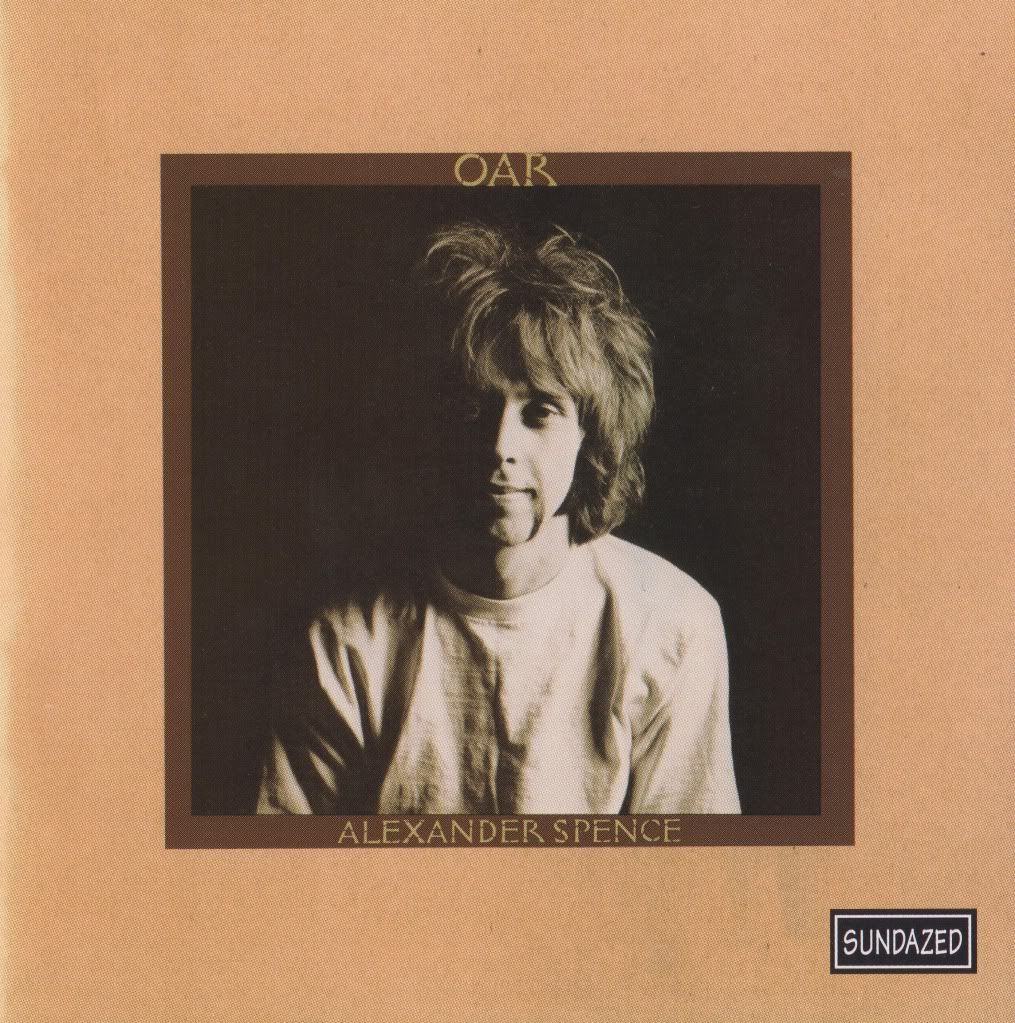I always thought that Skip Spence was the least technically proficient of Moby Grape's three guitarist/vocalists, but that he always made up for it with unmatched manic energy and that unquantifiable magic in his songwriting that few career songwriters manage to conjure. Of course, by 1969 and the release of this much-celebrated (but still obscure) solo album, Skip (now billed as Alexander) was long gone from the ranks of Moby Grape. There's a lot of mythology surrounding Spence's departure from the band, his time in Bellevue Hospital and the genesis of this album, which has generated a sort of Syd Barrett-like reputation for Spence as some sort of acid messiah. While I think it's easy to project an impression of the man's mental state onto this collection of songs, I think it holds up as fascinating and idiosyncratic work without reading too much into or presuming too much about its creator's psyche.
Probably the album's defining characteristic is that it was recorded in seven days with Spence playing all of the instruments (mostly guitar, bass and drums), which gives the album a loose, tentative feel that occasionally comes across as sort of half-assed and shambling. What continually fascinates me on repeated listens, though, is that the rushed, uncertain mood sort of fades away like a patina being polished to reveal songwriting that's often full of musical nuances and clever wordplay and not nearly as tossed-off as it seems. Like Syd Barrett, Spence has a reputation for sort of spontaneously firing great material straight out of his drug and illness-wracked brain, but I think he's a lot more in control than the songs' cowboy ballad structures and sketchy, plodding arrangements would suggest. Take the tongue-in-cheek mockery of Eastern religion-obsessed hippies of "Dixie Peach Promenade," the hilarious wordplay of "Broken Heart" ("an Olympic super swimmer whose belly doesn't flop/a super race car driver whose pit it can't be stopped") or the more somber punning "weighted/waited" turnaround of the country lament, "Weighted Down (The Prison Song)." Spence clearly has a knack for sharp satire, a taste for evocative images and an eye for the overall structure and flow that is so crucial to "classically" good songwriting.
While the album's songs veer toward a folk/country ballad style more often than not, it wouldn't have gained its cult status without some overt psychedelia--the opening "Little Hands" has the album's most hippie-ish message and amply demonstrates Spence's ability to blend droning acoustic guitar with clean electric parts for a unique texture. This palette reappears on the hazy "All Come to Meet Her," the closer, "Grey/Afro," which drones a little aimlessly but pays off with some cool bass/drum interplay at the end, and the album's psychedelic crown jewel "War in Peace," where Spence's delay and reverb-treated whispery vocals float above a sinuous, repeatedly swelling chord progression that finally breaks open with some understated but well-chosen lead guitar notes. Spence's delayed vocal sound effects twitter in between blooming guitar strums as the song fades out over a forgivable ripoff of the "Sunshine of Your Love" riff.
I sometimes wonder what this album had been like if Spence had demoed the songs and rehearsed a lot more before going into the professional studio. It certainly would have smoothed the rough edges on some of the wheezy vocals and tightened up the tendency of the drums and bass to emulate drunken lurching (hear both on "Lawrence of Euphoria"). Then again, I think the ragged feel is part of the album's charming appeal--it's almost like a trick, duping the listener into believing the music is garbage when in reality all of the most important melodic, structural and creative elements are there in droves. Consequently, the low-key sound means the songs are never really obtrusive despite their psychedelic tinges but anyone really paying attention will be rewarded by Spence's craftsmanship, which comes across as confused muttering if the disc is played as background music. This deceptively casual veneer has got to be one of the reasons this album is so popular with musicians--it's not easy to pull off, and the minimalism of the album's template means the songs could be (and were
Get it here


1 comment:
Elliot,
It's always good to read another thoughtful analysis of this masterpiece. I appreciate you sharing your perspective and for saying "hi" over at my place.
Best regards,
RF
Post a Comment